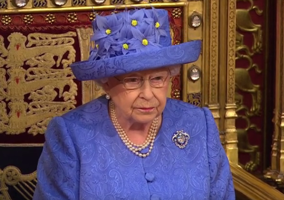Last week two key pieces of legislation that will affect charities and social enterprises finished their journey through parliament. Here's what charities need to know about what the changes mean.
Changes that will follow from the Charities Act 2022 should reduce some admin burdens on charities, as well as help the sector save £2.8m a year.
Whereas the Dormant Assets will free-up additional money for the sector by increasing the amount of funding available through that scheme.
Charities Act 2022
What is covered by new legislation?
This legislation implements the majority of the Law Commission’s recommendations from its 2017 review of technical issues.
Under the legislation it will be easier to amend governing documents, make ex-gratia payments and simplify the process of buying and selling land.
It also introduces changes for where funds can be reallocated when a fundraising appeal has not met its target. Further changes also aim to simplify the merger process.
Charities will gain the power to borrow from a permanent endowment. Trustees will also be able to be paid for goods or services that they provide to their charity.
The Charity Commission will get a raft of new powers:
- Authorise charities to pay an equitable allowance
- To require charities to change or stop using inappropriate names
- Ratify the appointment or election of charity trustees where there is uncertainty concerning the validity of their appointment or election
What happens next?
The Charity Commission is now responsible for implementing many of the changes and aims to do so gradually by autumn 2023.
This means that there will be changes to the regulator’s guidance to trustees as well as for its own staff. Some systems will also need updating.
In a blog on the Commission’s website, Aarti Thakor, director of legal services, wrote: “We will let charities know when each of the relevant provisions come into force and we have consequently updated certain pieces of guidance, or amended an online service.
“We will also be clear about when the process has concluded – so when all the provisions that require changes from us have been implemented.”
Dormant Assets Act 2022
What is covered by new legislation?
This act of parliament expands the types the of dormant assets that can be unlocked for good causes to the insurance and pensions, investment and wealth management, and securities sectors.
The government estimates that this will eventually make £880m available to charities.
Plans to expand this scheme were first announced in December 2015 when Nick O'Donohoe was appointed to lead a commission to identify potential unclaimed assets. When O’Donohoe reported back in March 2017, he said that there was potentially up to £2bn available.
The legislation also makes changes to reflect the fact that the Reclaim Fund Ltd (RFL) has recently be established as a non-departmental public body. Previously it was a limited company, which administered the scheme.
As part of the changes the process for distributing funds in England will be more flexible, similar to the devolved administrations. But before the government can change how funding is used it must carry out a public consultation and work with the National Lottery Community Fund.
What happens next?
Funding from dormant assets featured heavily in the government levelling up agenda, and it has promised to consult on how the English portion of funding should be used this summer.
In a statement the government said this consultation could include:
- Supporting young people
- Helping people struggling to manage their money
- Growing the social investment market
- Addressing long-term funding to improve social infrastructure through community wealth funds
Nigel Huddleston, minister for civil society and youth, said: “The expansion of this fantastic scheme will help change people’s lives for the better.
“We are doubling the financial support it can provide to support our recovery from the pandemic and level up communities.
“I encourage eligible organisations to participate in this unique opportunity, which is also inspiring other countries, to contribute to positive societal change.”
Related articles












